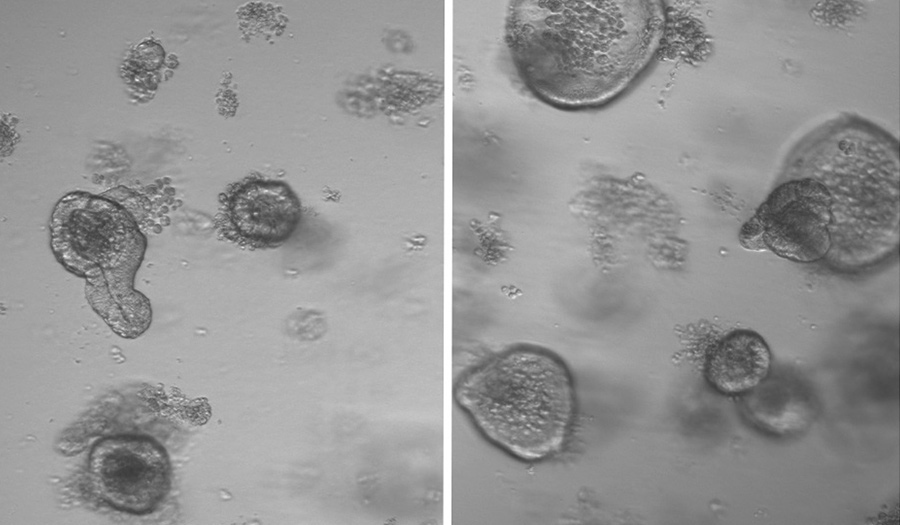 Getty Images
Getty Images
World News Desk
Learn the why behind the headlines.
Subscribe to the Real Truth for FREE news and analysis.
Subscribe NowFasting may help people lose weight, but new research suggests going without food may also boost human metabolic activity, generate antioxidants, and help reverse some effects of aging.
Scientists at the Okinawa Institute of Science and Technology Graduate University (OIST) and Kyoto University identified 30 previously-unreported substances whose quantity increases during fasting and indicate a variety of health benefits.
“We have been researching aging and metabolism for many years and decided to search for unknown health effects in human fasting,” said Dr. Takayuki Teruya, first author of the paper and a technician in the OIST G0 Cell Unit, led by Professor Mitsuhiro Yanagida. “Contrary to the original expectation, it turned out that fasting induced metabolic activation rather actively.”
The study, published January 29 in Scientific Reports, presents an analysis of whole human blood, plasma, and red blood cells drawn from four fasting individuals. The researchers monitored changing levels of metabolites—substances formed during the chemical processes that grant organisms energy and allow them to grow. The results revealed 44 metabolites, including 30 that were previously unrecognized, that increased universally among subjects between 1.5- to 60-fold within just 58 hours of fasting.
In previous research, the G0 Cell Unit identified various metabolites whose quantities decline with age, including three known as leucine, isoleucine and ophthalmic acid. In fasting individuals, these metabolites increase in level, suggesting a mechanism by which fasting could help increase longevity.
“These are very important metabolites for maintenance of muscle and antioxidant activity, respectively,” said Dr. Teruya. “This result suggests the possibility of a rejuvenating effect by fasting, which was not known until now.”
Metabolites Give Clues to Mechanism and Health Effects
The human body tends to utilize carbohydrates for quick energy—when they are available. When starved of carbs, the body begins looting its alternate energy stores. The act of “energy substitution” leaves a trail of evidence, namely metabolites known as butyrates, carnitines, and branched-chain amino acids. These well-known markers of energy substitution have been shown to accumulate during fasting.
But fasting appears to elicit effects far beyond energy substitution. In their comprehensive analysis of human blood, the researchers noted both established fasting markers and many more. For example, they found an increase in substances produced by the citric acid cycle, a process by which organisms release energy stored in the chemical bonds of carbohydrates, proteins and lipids. The marked increase suggests that, during fasting, the tiny powerhouses running every cell are thrown into overdrive.
Fasting also appeared to enhance the metabolism of purine and pyrimidine, chemical substances that play key roles in gene expression and protein synthesis. The finding suggests fasting may reprogram which proteins cells build at what time, thus altering their function. The change may promote homeostasis in cells, or serve to edit their gene expression in response to environmental influences.
When metabolized, purine and pyrimidine also boost the body’s production of antioxidants. Several antioxidants, such as ergothioneine and carnosine, were found to increase significantly over the 58-hour study period. Antioxidants serve to protect cells from free radicals produced during metabolism. Products of a metabolic pathway called the “pentose phosphate pathway” also stay the harmful effects of oxidation, and were similarly seen to increase during fasting, but only in plasma.
Newfound Health Benefits of Fasting?
The authors suggest that these antioxidative effects may stand as the body’s principal response to fasting, as starvation can foster a dangerously oxidative internal environment. Their study provides the first evidence of antioxidants as a fasting marker. In addition, the study introduces the notion that fasting might boost production of several age-related metabolites, abundant in young people, but depleted in old.
“Recent aging studies have shown that caloric restriction and fasting have a prolonging effect on lifespan in model animals…but the detailed mechanism has remained a mystery,” said Dr. Teruya.
The findings expand on established ideas of what fasting could do for human health.
“People are interested in whether human beings can enjoy the effects of prevention of metabolic diseases and prolonging life span by fasting or caloric restriction, as with model animals,” said Dr. Teruya. “Understanding the metabolic changes caused by fasting is expected to give us wisdom for maintaining health.”
- World News Desk
- HEALTH ISSUES
 Just 1 Day of Fasting Can Regenerate Stem Cells, Study Finds
Just 1 Day of Fasting Can Regenerate Stem Cells, Study Finds


